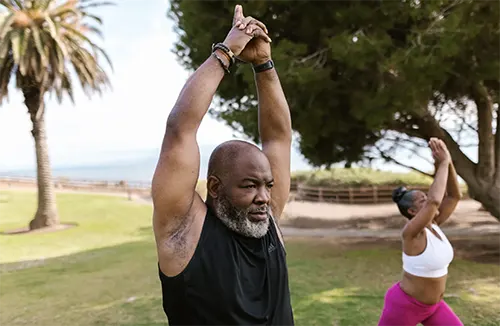Combating Age-Related Physiological Decline
15 December 2023
age-related physiological decline negative effects of aging prioritizing mental health The Birches on Maple
As we age, our health becomes even more important for enjoying a fulfilling and longer-lasting quality of life. Understanding and addressing the physiological changes that occur as we grow older is crucial. While genetics do play a role, there are steps we can take to bolster our health as we age.
Following a healthy diet, exercising regularly and prioritizing mental health can greatly enhance our overall well-being and longevity. To effectively combat age-related physiological changes, it is essential to understand what those changes are.
The National Institutes of Health (NIH) describes several types of physiological changes, including a weakening cardiovascular system, decreased bone density, muscle and joint loss, changes in brain function, diminished senses, decline in kidney and urinary tract health and deteriorating lung strength.
Thankfully, the negative effects of aging can be slowed down and even reversed, allowing for independent living and an excellent quality of life in our golden years.
The NIH recommends several ways to combat age-related physiological decline:
- Weightlifting: Research has shown that muscle mass is a better predictor of longevity than weight or BMI in adults over 55.
- Aerobic exercise: Promotes positive cardiovascular changes, increases strength, improves mobility and balance, and enhances endurance.
- Maintain a healthy diet: Strengthens the immune system, improves cardiovascular health, enhances energy levels and supports cognitive aptitude.
- Nurture cognitive health: Engage in activities like playing games, socializing, reading, and learning new skills to invigorate and preserve cognitive well-being.
- Cut out unhealthy habits: Avoid excessive alcohol and soft drink consumption, smoking and other unhealthy substances that can rapidly deteriorate physiological health.
- Get plenty of rest: Quality sleep is essential for repairing and rejuvenating the body, fighting disease and reducing chronic disease risks.
- Get regular medical checkups: Consistent evaluations can lead to early detection and provide the best chance of addressing and overcoming health conditions or diseases.

